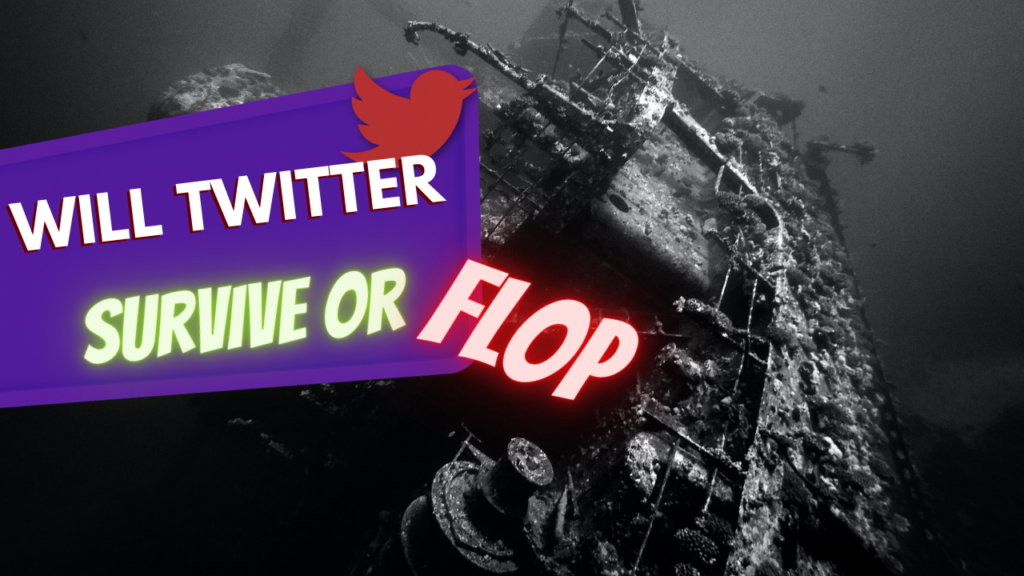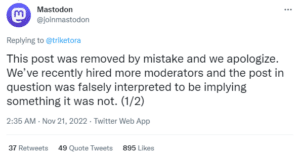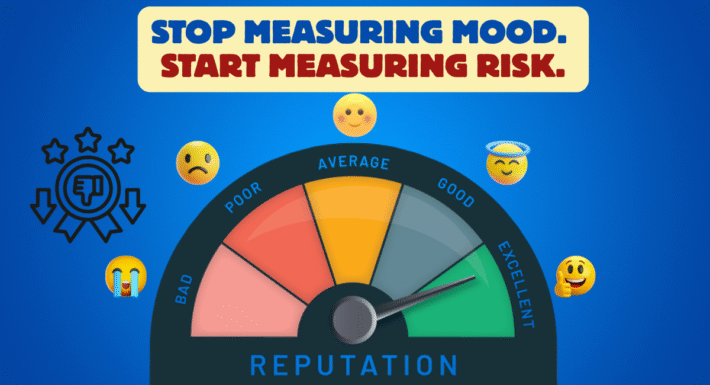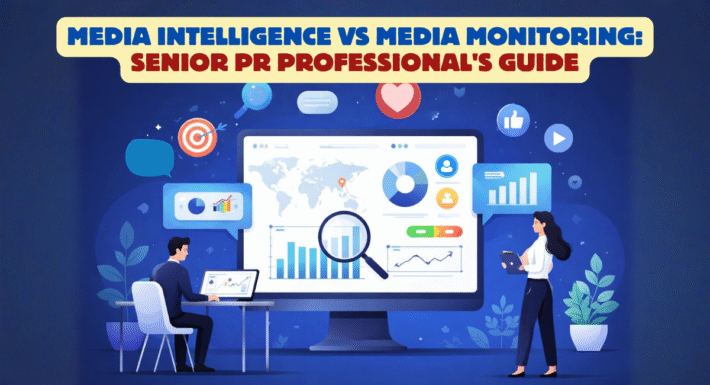Twitter: Ghost Ship or a Phoenix Rising?

Have you ever visited your favorite restaurant, only to suddenly find it under new management?
For the nearly 400 million people who use Twitter as a daily source of their media diet – including myself – that’s what we’ve experienced over the past couple of weeks.
The shrimp scampi? Off the menu. The health department? They’ve been called in. The service staff are being forced to share their tips. The vibe has been impacted.
I’ve struggled with Twitter since Elon Musk completed his acquisition of the social media company in late October. What’s keeping me there is the fact that it is still up, audiences are still engaged, and (as of yet) there isn’t another restaurant in town.
But there are pros and cons – both for individuals and brands – to staying on Twitter these days. Here’s a breakdown.
Why Twitter is Still Worth It:
- Twitter is still up: I’m impressed the site is still running, and you can thank some unnamed group of engineers running DevOps for keeping the lights on. That’s a story I want to read. If Twitter is still running by Christmas I want a feature article by Wired interviewing Musk’s skeleton crew keeping the site running (though Musk’s companies are well-known for not providing media interviews, you never know). There are still good news stories to write about Twitter, regardless of who owns it – especially if we accept the fact that Twitter is different now, but not yet dead.
- People are still tweeting: Fewer people I engage with have left than expected. Yes, there are a lot of notable people who’ve dropped off the site – they said they would, and did. We’ll see how long that persists, but given item No. 1, I’m surprised so many people have given up the battlefield and abandoned their audiences because they dislike Elon. Twitter has yet to grow into a textual 4chan. As Stephen King wrote in his recent novel, Fairy Tale: “A brave man helps. A coward just gives presents.”
- Audiences are still engaged: Lurkers are still reading and people still having conversations – and some of them are even worthwhile! If engagement seriously drops and people stop retweeting, the platform will struggle. There are lots of bots and dormant accounts, and if Twitter really starts feeling like a ghost ship users will run away. According to SimilarWeb data, Twitter remains the fourth most trafficked website in the world. My own review of the data suggests there’s been an increase in visits of about three percent in November alone.
- Former President Trump never really left: It doesn’t matter whether the twice impeached former President begins tweeting again or not, his followers still share his content on Twitter and organize on social media. Banning him didn’t stop that. If Trump begins sharing again, it makes the conversation more direct: The bullhorn can be laughed at, and those supporting his ideas (for good or ill) will be out in the open.
Challenges are real, but not (yet) fatal:
1. Brand Safety is At Risk: The pay-for-verified-status debacle hurt Twitter, and it hurt brands (just look what happened to Eli Lilly). That alone is a reason for larger brands to stay clear for the time being – at least where advertising is concerned. Clearly, there are brand safety concerns: Offensive content is taking longer to take down, and ad reporting is askew according to a number of brand managers. Worse: Copyright management has apparently disappeared, and people are uploading full-length movies onto Twitter. Not good.
2. Elon Himself: It is odd to see the CEO of a company troll his own business and take apparent glee in impacting his own staff. The lawsuits and HR issues he’s created by taking such a hard line as CEO will almost certainly come back to haunt him, and the greatest risk to Twitter is it being sued into oblivion by its former employees. The “move fast and break things” theory of management is great when you are disrupting an old industry, but not when it profoundly hurts your own team. Whether the company has the human capital to keep the site running is an open question.

To summarize: Yes, people are leaving Twitter. No, there isn’t a better replacement available yet. With so many businesses, governments, and people who rely on Twitter as a syndication channel, and as a key for brand measurement, we’re stuck with it for now.
To quote Trooper’s seminal work: “We’re here for a good time, not a long time. So have a good time, the sun can’t shine every day.” The sun is still shining in this rainy city called Twitter, you might as well keep tweeting until you can’t.




